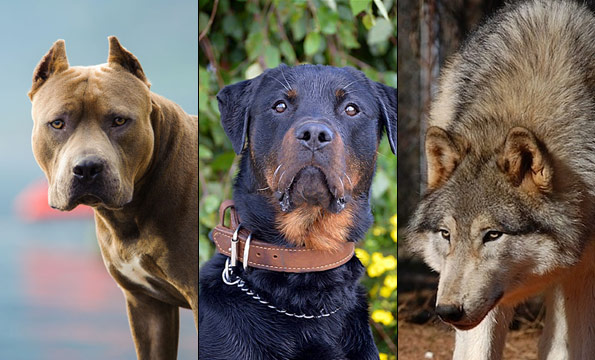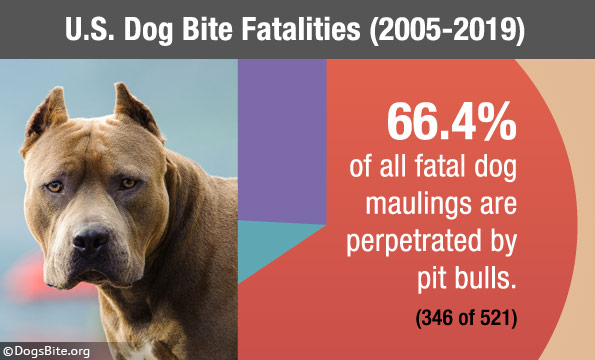
Dog Bite Fatality Updates
DogsBite.org - Currently, we are heading into what is normally the worst season of dog bite fatalities (Nov and Dec). Yet, there is nothing normal about 2020. We knew last year that the election would be contentious, which can correlate to a lower number of media reports of fatal dog attacks. Covid-19, however, was not an expectation. Soon, both aspects will be occurring at once. We anticipate a decrease in dog bite fatality reports during this time compared to previous years.
Currently, we have nine public information requests out to various agencies pertaining to fatal dog maulings, some spanning a 15-year period. That number will grow to about 15, as we continue to contact medical examiner and coroner offices in high population counties in the South seeking the total number of people killed by dogs from 2005 through 2019. Our intention had been to get them all sent by April, until Covid-19 happened, which disrupted many of these very departments.
Record requests have also been delayed in some places. While we had anticipated releasing our 15-year report this fall, that is not an option under the ongoing circumstances. The goal of the 15-year report -- data uninterrupted by Covid-19 -- is to capture as many dog bite fatalities as possible. Though we do compare our death number data to CDC WONDER every few years, even CDC's database is known to undercount. All small number death data have reliability issues.
Since readers are now more familiar with "incident rate" due to Covid-19 data -- a disease, injury or death per 100,000 population -- consider that the incident rate for measuring dog bite fatalities is an incident per 100 million population (to avoid excessive zeros). A small number of deaths, however, are perfectly valid as a safety measure. We consistently see this in automobile recalls and recalls of child products and tip-over furniture that have resulted in statistically few deaths.
Between 2000 and 2011, 215 children died from injuries caused by a falling TV.
"This is a serious problem," said the study’s senior author, Dr. Gary Smith, a pediatrician at Nationwide Children's Hospital in Columbus, Ohio, told NBC News. "A child's dying once every three weeks from a TV tip-over. The numbers are going up. This is a call to action. These are 100 percent preventable injuries." - Today.com, July 21, 2013
Pit Bull Fraud Updates
Since 2019, we have been covering pit bull con artists, like Luke Westerman and Steffen Baldwin, both of them are cut from the same cloth. Westerman, assisted by the pandemic, has managed to keep delaying his upcoming criminal trial, where he faces 19 felony charges in security law violations and theft. His next scheduled appearance in court is October 20. December of this year will mark the two-year anniversary since the 19-count felony indictment was handed down.
Attorneys representing Baldwin recently filed their first continuance, stating, "Counsel for Defendant has received more than twenty-five thousand (25,000) pages of documents as well as about 24 media files from the State to review and analyze." Defense will "need sufficient time to sort through this information and interview witnesses." We anticipate that Baldwin, who faces a 42-count felony indictment related to animal abuse and fraud, will proceed to trial in 2021.
The other con artist of note is Bradley Croft, who continues to await sentencing from a federal judge after being convicted on all counts related to defrauding the GI Bill program out of nearly $1.5 million. Croft, who operated San Antonio-based Universal K9, "intentionally bamboozled the Texas Veterans Commission" to accept Universal K9 as a credentialed school (when it was not) so he could fraudulently collect nearly $1.5 million in tuition payments, according to reports.
"The federal authorities say Croft then laundered the money on a luxury motor home and by buying the property for the dog-training school. They also claim he used the money for two jet skis and a penile implant, and that he lied on his tax forms about his income." - San Antonio Express-News, November 6, 2019
Prior to his arrest in August 2018, Croft had been paid nearly $250,000 by Animal Farm Foundation (AFF) -- a flank of the pit bull lobby -- to train pit bulls as K9 detection dogs then give the dogs to police departments free of cost. From 2015 to 2017, AFF paid Croft a quarter of a million dollars to train about 30 pit bulls for this public relations stunt, according to 990 tax records. This pit bull K9 stunt funded by AFF continues today using a different K9 instruction school.
As Bradley Croft awaits his sentencing, which could result in 25 years behind bars, his family is begging President Donald Trump for a pardon. According to online records, Croft is expected to learn his fate in mid-October. It seems unlikely any president would pardon a man that defrauded the GI Bill and left some veteran students holding meaningless certificates in K9 dog handling. Croft was also known for using "hotdogs in order to make the dog search target areas."
Legislative Updates
Earlier this year, the mayor of Denver vetoed an attempt to repeal the city's 30-year old pit bull ban by replacing it with a breed-restricted license that requires pit bulls to be registered, microchipped and vaccinated (which responsible dog owners already do). As we wrote back in February, the bill's sponsor, Councilman Chris Herndon, was expected to try to place his proposal on the November ballot. In August, the city council agreed. Voters will see this language on the ballot:
"Shall the voters of the City and County of Denver adopt an ordinance authorizing the city to grant a provisional permit to owners or keepers of a pit bull, provided the owner microchips the animal and complies with additional requirements set by Denver Animal Protection?" - Denver's 2020 Ballot Item
We expect the ballot item to prevail due to how it is written. Voters will not be considering the following: The proposal does not require pit bull owners to carry liability insurance. Thus, after a damaging attack, a victim will be unable to recover medical bill costs, loss of income and rehabilitation costs. Some voters who approve this ballot measure will discover this the hard way. Herndon's proposal is so defective, it does not even require pit bull owners to sterilize their dogs.
Also in February, we examined Denver's bite statistics. Over the 3-year period of 2017 to 2019, pit bulls ranked third among the top biting breeds in the in the Level 4 bite category. In the Level 5 bite category, pit bulls tied with boxers for second. Both breeds inflicted 5 of these severe bites, surpassed only by the American bulldog, which accounted for 8 bites. If Denver's pit bull ban is repealed, we expect at least a 4-fold increase in pit bull bites across all injury levels in just 5 years.
National Defense Authorization Act
Currently, the National Defense Authorization Act (NDAA) has passed both chambers and is in conference, while both bill sponsors iron out the differences between the two bills. Each bill contains a clause drafted by the American Bar Association (ABA) that will prohibit military branches -- U.S. Army, U.S. Marine Corps, U.S. Air Force, etc -- from using breed-specific policies, the very policies that have been protecting families in military housing for over a decade.
Where did this clause come from? It began in 2011-2012 when Ledy Vankavage, a lobbyist for Best Friends Animal Sanctuary (BFAS), became the chair of the ABA's Animal Law Committee. Vankavage was the "national manager" of the BFAS "pit bull terrier initiative," and at that time also served on the board of AFF. One of Vankavage's primary roles is to draft and lobby for state preemption legislation that prohibits local government from passing breed-specific laws.
Recall that AFF, whose sole mission is, "Securing equal treatment and opportunity for 'pit bull' dogs," also owns the for-profit National Canine Research Council (NCRC) -- both are zealot, single-agenda pit bull groups financed by Jane Berkey. In a 2011 snapshot, they all graced the ABA's website. Vankavage is chair of the ABA committee at that time and spoke at an event about Ontario's "breed-specific legislation." Vankavage's cohort, NCRC, moderated the Toronto event.
Every year, our nonprofit fights these preemption bills. Since January 2012, state legislators have rejected 81% of these bills. Over the last 4.5 years, Jan. 2016 to June 2020, the rejection rate increased to 88%. In 2020, these bills were defeated (again) in Kentucky and Missouri. No one is surprised that Vankavage used her role as the chairperson of the ABA committee to advance this type of legislation nationally; the only relevant body that could be affected is the military.
In 2019, the ABA adopted a resolution to prohibit the Armed Forces from using breed safety policies. The ABA is a voluntary professional membership organization for lawyers. They have no mission to protect human lives, nor are they part of the federal government. They do have a concern for "due process protections" for the owners of dangerous dogs and for those charged in reckless dog owner incidents, but no concern for human beings viciously attacked by dogs.
That 2019 resolution made its way into the National Defense Authorization Act for 2021. Senator Tammy Duckworth (D-IL) takes credit for adding it to the Senate version of the bill. "A Duckworth-authored provision to require the DoD Veterinary Service Activity to standardize policy across DoD installations for dangerous dog regulations that are breed-neutral," states her website. At the ABA's urging, and by using a certifiably false argument, the House committee adopted it too.
Between 2009 and 2012, each major military division—U.S. Army, U.S. Marine Corps and U.S. Air Force—adopted a uniform pet policy. It is a false argument that the Department of Defense (DoD) needs to supersede these military branch unified pet polices, whereby nullifying them and preempting each military branch from protecting personnel in family housing areas. The goal of a breed safety policy is to prevent “first attacks” by dog breeds that have well-identified risks.
“Breed-neutral” policies deliberately ignore the severity of first attacks by pit bulls and rottweilers, which can cause severe injury and disfigurement—mauling injuries—or death. Wolf-dog hybrids are so dangerous to young children that multiple states ban them outright.
It is reasonable for military branches to impose restrictions on classes of dogs that statistically cause more harm to humans, especially children, when they attack. - DogsBite.org, October 7, 2020
Leading up to these unified pet policies, several children were killed by pit bulls in military housing, and likely many more were seriously injured. The 2009 Marine Corps order specifically stated, "Pit bulls, rottweilers, canid/wolf hybrids, or any canine breed with dominant traits of aggression present an unreasonable risk to the health and safety of personnel in family housing areas." Since that time, 14 peer-reviewed medical studies have further validated this "unreasonable risk."
National Pit Bull Victim Awareness Day
Last year, Responsible Citizens for Public Safety (RC4PS) held the first-ever event on National Pit Bull Victim Awareness Day at the Michigan state Capitol building in Lansing. The founder of this nonprofit was the keynote speaker. The year's national awareness day is on October 26. Ann Marie Rogers, the founder of RC4PS, brings together Mia Johnson of National Pit Bull Victim Awareness and Colleen Lynn of DogsBite.org for a discussion in a pre-taped Zoom Conference.
In the midst of this isolating pandemic filled with uncertainty, we all thought it was important to speak to our audiences. Johnson will discuss National Pit Bull Victim Awareness Day that was first established in 2015, the related organization, and why it was started. Rogers and Lynn will discuss legislative issues -- this post is a first look at those legislative issues. We are pre-recording so that we can edit and remove any technical issues should they occur (and they did occur!).
Summary and Call-to-Action
We strongly encourage our readers to contact congressional members about the NDAA "breed neutral" policy authored by special interest pit bull groups that will remove breed safety policies that have been protecting military personnel and their children for over a decade. Send snail mail letters to the chairmen and ranking members on both committees using the following contact information. The NPBVA page also has an alert set up that only takes a minute to fill out!
The Honorable James Inhofe
Chairman
Committee on Armed Services
United States Senate
Washington, D.C. 20510
The Honorable Adam Smith
Chairman
Committee on Armed Services
United States House of Representatives
Washington, D.C. 20515

The three primary dog breeds restricted from military family housing by U.S. military branches.

15 years of U.S. fatal dog maulings (2005-2019). Pit bulls inflicted 66.4% of these deaths.
Related articles:
08/18/20: Unmasking a Con: How a Pit Bull Activist Rose to Fame in the No-Kill Community
02/23/20: Denver Dog Bite Statistics by Breed and Injury Severity Over a Three Year Period
02/17/20: Mayor of Denver Vetoes Pit Bull Ban Repeal Legislation, Slowing the Hasty Repeal
02/10/19: Unmasking a Con: How a Sudden Pit Bull Activist Parleyed Role into Top Job

The time to act decisively is now. The lambs to the slaughter strategy is not working. Celebrating November a few days early is one way I can be of concrete help.
Redacting the military bans is very disturbing. Our family is military and has lived on base and visited many more. Bases are highly populated with children; many base housing neighborhoods do not even have fencing; and military members are often deployed or away in trainings, which means the dogs would be in households that experience numerous changes on a continual basis. All these scenarios are high-risk for pit bull attacks.
Considering all the barriers this year Colleen, you did a fine job of keeping up, investigation and collating all this important public information.
Thank you.
Thank you, Colleen for all your hard work!